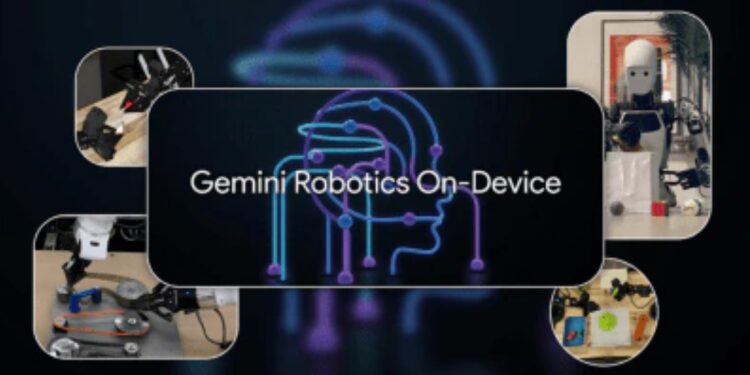In a significant leap for the field of robotics, Google DeepMind has officially launched its new Gemini Robotics On-Device AI model, designed to run directly on robots without requiring a constant internet connection. This innovative development promises to usher in a new era of robot autonomy, efficiency, and privacy, with initial demonstrations showcasing remarkable capabilities in diverse real-world scenarios.
Unlike previous AI models for robotics that heavily relied on cloud computing for processing, Gemini Robotics On-Device brings the intelligence directly to the robot itself. This crucial shift dramatically reduces latency, allowing robots to make real-time decisions, and ensures robust operation even in environments with limited or no connectivity, such as manufacturing floors, remote locations, or secure facilities.
“It’s small and efficient enough to run directly on a robot,” stated Carolina Parada, Head of Robotics at Google DeepMind. “We’re actually quite surprised at how strong this on-device model is.”
The model, a lightweight extension of the powerful Gemini 2.0 architecture, prioritizes semantic and physical safety, adhering to Google’s rigorous internal standards. Despite its optimized size, it retains multi-step reasoning and dexterous control, proving highly adaptable to new tasks and various robotic forms. Initial testing has seen it successfully deployed on diverse platforms, including the ALOHA robot, the bi-arm Franka FR3, and even the Apptronik Apollo humanoid.
In action, Gemini Robotics On-Device demonstrates impressive versatility. Robots powered by the model can understand natural language instructions and learn new, complex tasks from as few as 50 to 100 demonstrations. This “low-shot learning” capability allows for rapid adaptation to specific requirements, from meticulously folding clothes and zipping bags to performing industrial belt assembly with precision.
Google is also making a Gemini Robotics SDK available to a select group of developers through a “trusted tester” program, enabling them to experiment with the model in MuJoCo physics simulations and fine-tune it for particular applications. This move signals Google’s commitment to fostering a broader ecosystem for on-device AI in robotics.
The launch of Gemini Robotics On-Device marks a pivotal moment, pushing the boundaries of what robots can achieve autonomously and hinting at a future where intelligent, self-reliant robots become an integral part of logistics, industrial automation, and even daily life.










![Online Scam Cases Continue to Rise Despite Crackdowns on Foreign Fraud Networks [Myanmar] Online Scam Cases Continue to Rise Despite Crackdowns on Foreign Fraud Networks [Myanmar]](https://sumtrix.com/wp-content/uploads/2025/06/30-12-120x86.jpg)




